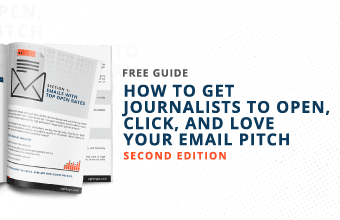A PR person assigned to gain major earned media publicity for a sponsors’ Super Bowl tie-in during the early years of the Big Game was the equivalent of being given an ice cream sundae by agency management. Reporters were anxious to interview football players that PR people would pitch as spokesmen for brands.
But over the years, the media has changed how it covers pre-game stories. Now the emphasis is not on players, teams and the game, but about the issues surrounding the Super Bowl, most of them negative. Offering current or past football players for interviews is no longer the sure thing it used to be.
Most media coverage of last year’s game revolved around the injuries to football player’s brains from concussions and at-home gambling. Gone are the days when a PR person could call up a sportswriter and say, “I can make Joe Jones, who played for the XYZ team in the Super Bowl two years ago, available for an interview. Do you want to interview him?” And usually the answer was “yes.”
Also, brands today cannot control what a player might say during a live interview because, unlike a few decades ago, when most players would not make statements that would upset a sponsor, more recent ones are not afraid to speak their minds about controversial issues that might upset sponsors.
A short media history lesson
In the past, sportswriters would not write about the unsavory off the field actions of athletes. “If it doesn’t happen on the ball field, it’s not a sports story, a nationally-known columnist once told me.” Today that type of thinking could get a person fired. Print sports writers today, unlike too many sports broadcasters, no longer act as PR arms of teams and leagues.
But many sports marketers and starry-eyed, sports crazy PR people seem not to take into consideration that journalism has changed. The days when writers would cover up the antics of a Babe Ruth or Mickey Mantle are gone. When choosing an athlete to represent a brand, both brands and their PR people refuse to acknowledge that athletes’ misdoings are now a staple of sports reporting.
Does this mean that marketers or publicists should avoid using athletes to gain publicity for products or events? Not necessarily. However, the following should be capitalized in bold type in every marketing or public relations play book: The Most Popular Athletes of the Moment are Not Necessarily the Best Choices.
I’ve been involved with the sports scene for many years, first as a sports reporter, then nearly 25 years at Burson-Marsteller and after as a consultant. I have witnessed the good, the bad and the ugly on all levels of the sports world, from high school to the Olympics.
In the 1970s and ’80s, when managing for eight years the publicity efforts for Gillette’s MLB All-Star Game fan election, I thought there was a safer way of using athletes than following the conformist marketing strategy of partnering with big-name current athletes. Despite warnings that my approach would surely fail in gaining the publicity I believed it would. And it did. I suggested using retired stars for publicity efforts. Some of the athletes urging fans to vote in All-Star elections that I used were Leo Durocher, Lefty Gomez, Juan Marichal, Ted Williams, Bob Feller, Sparky Anderson, Ernie Banks and Ralph Kiner. Based on the success of that campaign, I recommended that Hall of Fame pitcher Robin Roberts and Olympic standout Bob Mathias were recruited in Olympic-related campaigns that I managed, Roberts as spokesman for the 1984 baseball team that competed in the Los Angeles Olympics.
There are four main reasons for suggesting retired athletes or those not in the current media spotlight
- They are easier to come to terms with than current or recent stars.
- Current stars are interviewed by reporters frequently, usually not about product endorsements, but about the last or next game.
- Nostalgia is a big part of sports reporting, so bringing back stars from another era provides fresh copy.
- Importantly, they are less likely to get into trouble or express opinions that might result in bad publicity for a sponsor.
For the Super Bowl, I would suggest PR practitioners research former Super Bowl players who have not been in the media spotlight for a few decades and use them as brand spokesmen during the lead-up to the Big Game. Making athletes who are not easily available to the media for interviews provides a more likely way to break through the media clutter surrounding a mega sporting event. Just make certain that the athletes have a good reputation. (What I would do before choosing an athlete as a spokesperson, is ask a few sportswriters friends of mine if they knew of any skeletons in the closet that might come up during an interview. If the answer was “yes,” I would cross that person off my probable list.
So my public relations advice is to consider using well-known athletes who have been out of the media spotlight for awhile. A well-crafted program is sure to gain brand identification publicity and, importantly, the spokespersons are less likely to embarrass sponsors by ending up before an investigating committee, appearing on the police blotter or making a controversial comment during an interview.








